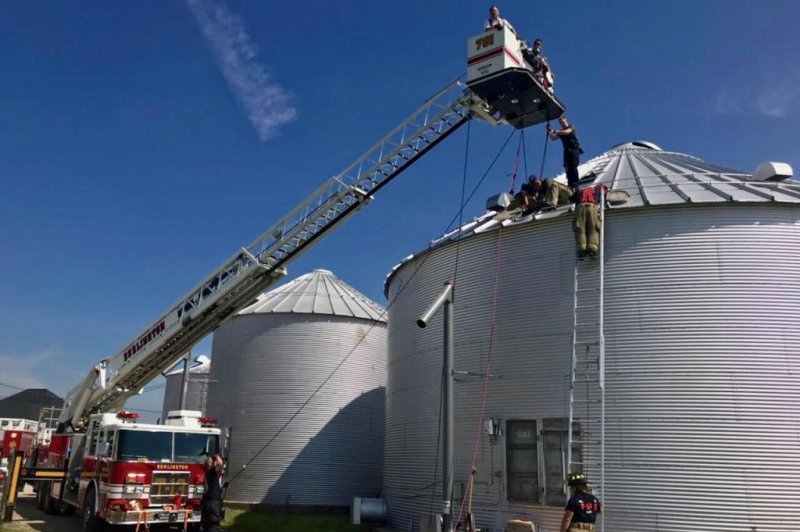A joint funeral was held for a Minnesota boy and his father and uncle who died after being overcome by toxic fumes from a silo in December. Photo courtesy of Burlington Fire Department
EVANSVILLE, Ind., Jan. 2 (UPI) -- An 11-year-old boy who was overcome by fumes while working atop a Minnesota silo has died, making him the third family member killed by the December silo accident.
The family held a joint funeral Tuesday for Alex Boesl, his father Curt, 47, and uncle Steven Boesl, 49.
The three were overcome by toxic fumes from a silage-filled bin on Curt Boesl's farm in Brandon on Dec. 21. Steven Boesl was pronounced dead at the scene, according to the Douglas County Sheriff's Office. Curt and Alex Boesl were flown to two nearby hospitals, where Curt Boesl died early the next morning. Alex Boesl died Friday.
"Alex danced his way into Heaven at 5:19 p.m., when one of his favorite songs came on his phone playlist ... 'Fight song' by Rachel Platten," a family member wrote in Alex Boels's CaringBridge page.
"He was a fighter and now he shares his miracle with others fighting," the post said, referring to Alex Boesl having donated his organs.
Curt and Alex Boesl were working together atop a silo when they collapsed, according to Douglas County Sheriff's Office. Alex's brother saw what happened and called 911. He also called his uncle, Steven Boesl.
Steven Boesl -- who served on the nearby Millersville Fire Department, where Curt Boesl was assistant fire chief -- arrived before emergency responders. He entered the silo to rescue his brother and nephew, but was also overcome by fumes.
The bin in which the Boesls were working contained silage, which are harvested green plants stored in airtight conditions to feed animals over the winter. Silage can emit gases that become trapped in large, enclosed bins, according to Penn State University.
"Silo gas is formed through the natural fermentation process of chopped forages shortly after it is placed in the silo," according to PennState Extension.
"Although injuries and fatalities caused by silo gases may not occur as often as other kinds of farm incidents, they are and will continue to be a very real hazard for as long as silage remains a common livestock feed."
A GoFundMe page set up for the family had raised nearly $130,000 by Thursday afternoon.















